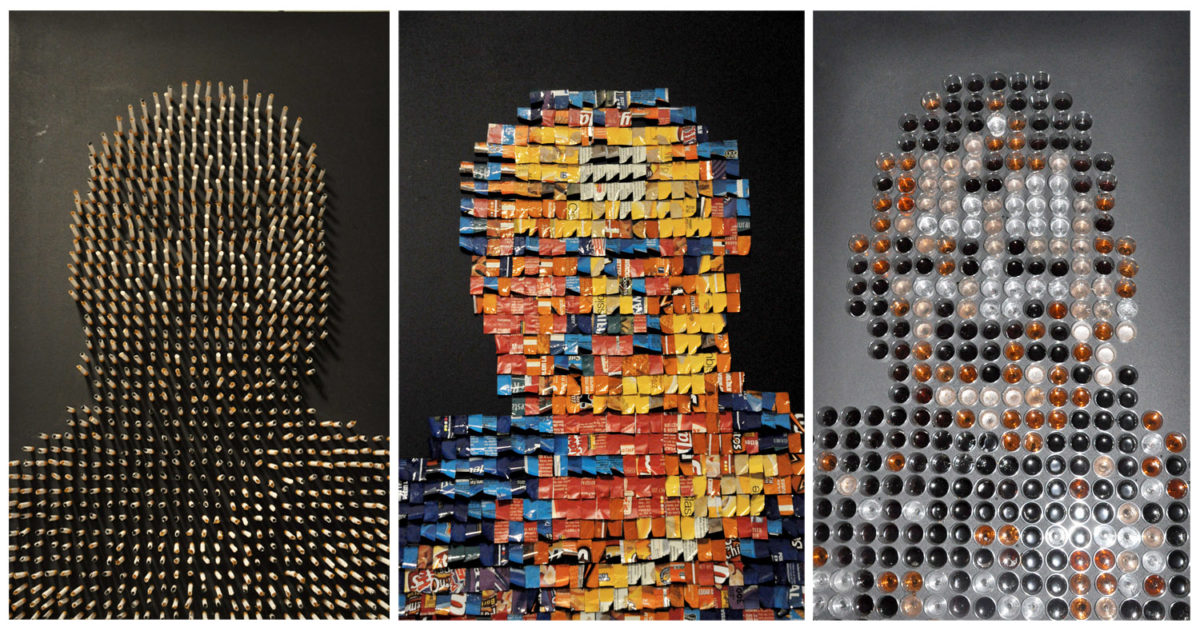

Like marionette strings, absurd cravings pull at our thoughts.
The brain’s reward centre purrs and you know you should be sleeping. Mangled sheets hit the floor, layers of clothing pile on top of pyjamas and the all too familiar quest for mental silence and satisfaction plays out—just one last time.
Our resolve fails and suddenly the idea of a cold walk to the convenience store seems preferable to the struggling distractions of a sweet-scented addiction.
“If you’re addicted to something, say cigarettes,” said artist Allison Green, “You’re constantly occupied with how you’re going to get enough cigarettes to get through the day and that gives you this false purpose to your life.”
These daily addictions are what spawned Green’s first solo art show. Aptly named, the “Consume” exhibition is being held at the Charlotte Street Arts Centre. The artist has used mixed media to channel her feelings about addictions’ ability to hijack our identity, values and decisions until we no longer recognize our own reflection.
Hanging from the walls are eight larger than life portraits, each piece a different silhouette crafted from the discarded remains of addiction. The works are fashioned from items such as decorated weed baggies, shot glasses and multicoloured pill capsules.
“I’ve had a lot of addictions in my life and I’ve kind of transferred from one to the next. At the time when I came up with this exhibition I was dealing with coming off of anti-depressants,” said Green.
“For me, my sense of identity reflects my passions at that time. I identify as an artist and as a science enthusiast. I consider these things a part of my identity, but when you’re overwhelmed by addiction, that comes to take the spot of your passions. You become completely devoted to that.”
Addiction wears many faces and we often forget that the thought process which forms these addictive patterns are similar to the routines we use to get through the day. We distinguish between drug addictions and every day addictions without thinking that the pattern of consumption remains the same.
“People have the impression that [addicts] are bad people or evil people but my experience with addiction is that it’s just addiction itself, not the substance,” said Green.
Neuroscience has determined that not only psychoactive drugs can be addictive, but anything someone considers pleasurable can turn into an addiction. Consider gambling for a prime example – where’s the chemical dependency there?
This is caused in part by how the brain registers pleasure. The brain’s pleasure centre recognizes all pleasing activities in the same way, by excreting dopamine, a neurotransmitter linked with motivation.
As a shortcut to the brain’s pleasure system, it becomes that even indulging in your favourite bag of chips might be a dopamine binge. Over time such a routine binge on dopamine changes the brain chemistry further. Cravings aren’t the least of it, as motivation and memories are also affected. These sensations can change your personality until even your value system and principles are hijacked.
So, next time you contemplate the one-more-chip mentality, think again, because soon you might not recognize your own face.
